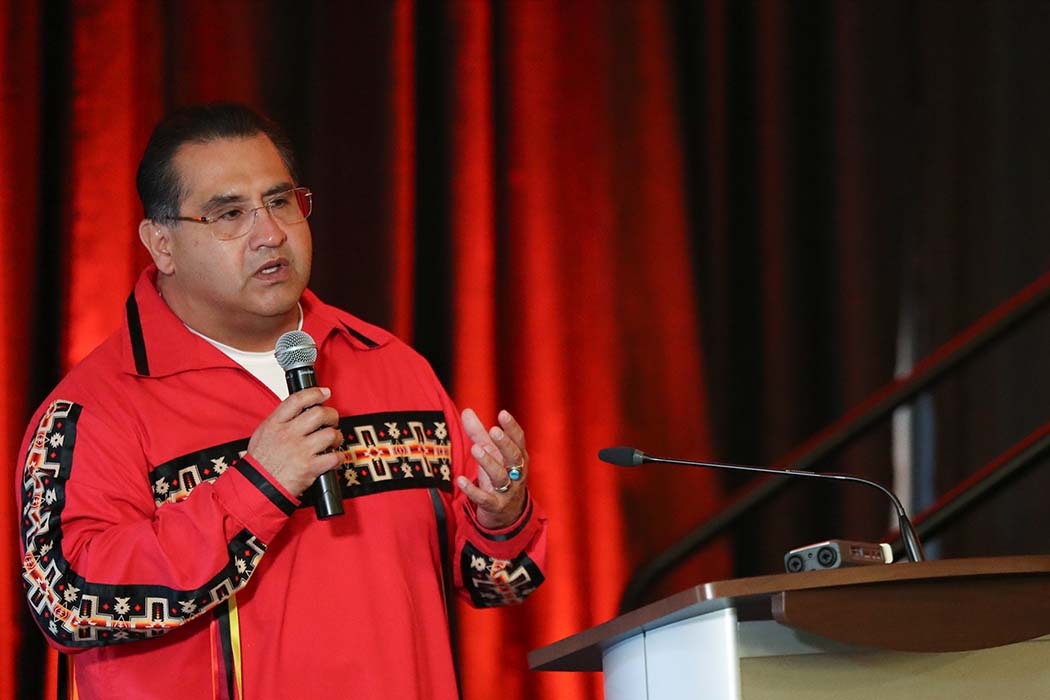
- Details
- By Native News Online Staff
Assemblymember James C. Ramos (D-San Bernardino), chairperson of the California Native American Legislative Caucus, on Wednesday issued the following statement upon the release of a third state auditor’s report dealing with return of Native American human remains and objects to tribes. The audit review once again damns the University of California (UC) for its lack of accountability and urgency in returning Native American remains and cultural items required by the 1990 Native American Graves Protection and Repatriation Act (NAGPRA) and its state counterpart, CalNAGPRA:
NAGRPRA became law 35 years ago. This latest audit sampled four campuses—Berkeley, Riverside, San Diego and Santa Barbara – along with the Office of the President. Campuses throughout the UC system are continuing to find collections, demonstrating an obvious haphazard negligence in its inventory process. Failure to return those inventoried remains and cultural resources is woefully incomplete at most campuses. UC has demonstrated a disrespectful, scornful, and cavalier attitude in its disregard for federal and state law. UC issued apologies after each previous audit, but little has changed, reflecting the insincerity and seeming unwillingness to follow these more than 30-year old laws. Besides, continuing to hold vast collections, the state auditor also found instances when the remains were treated carelessly. Improper care of cultural items and remains exposes the collections to being stolen as some items were in 2022 from UC, Davis.
UC’s Office of the President and too many of its campus chancellors, almost as a constant practice, failed to provide the leadership, oversight, resource allocation and accountability to comply with the law.
It is very disturbing to me as a Serrano/Cahuilla person who still conducts reburials of our people that a law implemented 35 years ago is still being discussed today, and furthermore the audit says it could take another decade to repatriate the collections in the UC system. As chair of the Native American Caucus and a sitting member in the state legislature, I will be insisting on a hearing to address the auditor’s findings.
More grievously and even more pernicious is the UC system’s apparent failure to comprehend that the collections it possesses and treats shamelessly are the human remains of Native Americans, ancestors of tribal Californians who deserve to be interred respectfully and in the traditions of their people. Why should these human remains be treated as less than those of the fathers, mothers, children, men and women of our own families? After all, the remains are not rocks or trophies, they are the human remains of California’s First People.
As we approach the 40th year of NAGPRA’s passage, we should assess or create penalties for this outrageous noncompliance with NAGPRA and CalNAGPRA.
More Stories Like This
50 Years of Self-Determination: How a Landmark Act Empowered Tribal Sovereignty and Transformed Federal-Tribal RelationsTreasury Finalizes Tribal Tax Rules Ending Decades of Uncertainty
Finalized Tax Rules Seen as Historic Win for Tribal Economies
Cherokee Nation Launches Digital Dictionary to Support Language Revitalization
Prairie Band Potawatomi Nation Chairman Addresses Homeland Security Contract
Help us defend tribal sovereignty.
At Native News Online, our mission is rooted in telling the stories that strengthen sovereignty and uplift Indigenous voices — not just at year’s end, but every single day.
Because of your generosity last year, we were able to keep our reporters on the ground in tribal communities, at national gatherings and in the halls of Congress — covering the issues that matter most to Indian Country: sovereignty, culture, education, health and economic opportunity.
That support sustained us through a tough year in 2025. Now, as we look to the year ahead, we need your help right now to ensure warrior journalism remains strong — reporting that defends tribal sovereignty, amplifies Native truth, and holds power accountable.
 The stakes couldn't be higher. Your support keeps Native voices heard, Native stories told and Native sovereignty defended.
The stakes couldn't be higher. Your support keeps Native voices heard, Native stories told and Native sovereignty defended.
Stand with Warrior Journalism today.
Levi Rickert (Potawatomi), Editor & Publisher


